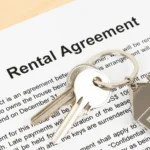Future of Risk Analysis in Property Leasing
In the evolving landscape of property leasing, the future of risk analysis is being reshaped by the groundbreaking integration of big data and analytics. This transformation is not just changing the game; it’s setting new standards for assessing risks in the real estate sector. With the advent of predictive analytics, property managers and investors now have a powerful tool to identify potential lease defaults or property devaluations preemptively, safeguarding their investments like never before.

Rise of Data-Driven Decision-Making in Property Leasing
In the rapidly evolving landscape of property leasing, adopting data-driven decision-making has become a cornerstone for success. With the integration of Artificial Intelligence (AI) and machine learning algorithms, property management companies can predict market trends and tenant behavior with unprecedented accuracy. This seismic shift towards a more analytical approach offers a competitive edge, ensuring investment decisions and risk assessments are grounded in solid data rather than intuition.
Harnessing AI for Market Predictions and Tenant Behavior Insights
AI and machine learning technologies have revolutionized property leasing, moving from a traditionally reactive business model to a proactive strategy. These advanced algorithms analyze vast datasets, identifying patterns and trends impossible for a human to discern. For property managers, this means anticipating market fluctuations, understanding tenant preferences, and tailoring their offerings to meet demand efficiently. Predicting tenant behavior with high accuracy enables property managers to optimize occupancy rates, reduce turnover, and enhance tenant satisfaction.
Improving Accuracy in Risk Assessments and Investment Decisions
The application of AI in property leasing extends beyond market predictions to significantly impact risk assessments and investment decisions. By leveraging data analytics, property managers can assess the viability of potential investments with a precision that markedly reduces financial risk. AI algorithms can evaluate factors such as location desirability, potential rental income, maintenance costs, and more, providing a comprehensive risk profile for each property. This data-centric approach ensures that investment decisions are based on robust analytics, minimizing the likelihood of unforeseen losses.
Real-World Success Stories of AI in Property Management
Missouri’s property management sector has witnessed several success stories where AI integration has yielded tangible benefits. For instance, property management companies in Chesterfield and surrounding areas have utilized AI to refine their leasing strategies, leading to higher occupancy rates and increased rental yields. Through predictive analytics, these companies have identified emerging trends in tenant preferences, adjusting their property portfolios to capitalize on these insights. Additionally, AI-driven risk analysis tools have enabled property managers to diversify their investments strategically, spreading risk across different property types and locations.
Integrating AI and Machine Learning for Enhanced Risk Management
The property leasing landscape is continuously evolving and influenced by various factors, including legal and regulatory changes. In Missouri, recent amendments and introductions in the property leasing sector have prompted property managers to rethink their risk management strategies. It’s imperative for those in the property leasing and management field, such as Avenue Residential Leasing & Management, to stay abreast of these changes to ensure compliance and minimize risk. This section explores the integration of Artificial Intelligence (AI) and Machine Learning (ML) as pivotal tools in enhancing risk management strategies.
Overview of Recent Legal and Regulatory Changes Affecting Property Leasing in Missouri
Like many states, Missouri has seen a wave of legal and regulatory adjustments to address the dynamic needs of the property market. These changes range from tenant rights and safety regulations to environmental compliance. For property managers, understanding these changes is crucial for legal compliance and maintaining a competitive edge. The complexity and frequency of these changes can be overwhelming, making traditional risk management approaches less effective.
Importance of Staying Compliant and How Risk Analysis Tools Can Aid in This Process
Compliance is not just about adhering to laws; it’s a critical component of risk management that protects the property management company from financial penalties and reputational damage. AI and ML come into play by offering sophisticated risk analysis tools to process vast amounts of data from legal and regulatory updates in real-time. These technologies can predict potential compliance risks by analyzing patterns and trends, enabling property managers to make informed decisions swiftly.
Strategies for Property Managers to Adapt to These Changes While Minimizing Risk
Adapting to legal and regulatory changes while minimizing risk involves a proactive approach, and here’s where AI and ML significantly contribute. Implementing AI-driven risk analysis tools can provide property managers with actionable insights, from tenant screening to lease management and compliance monitoring. These tools can automate routine tasks, flag potential issues before they escalate, and provide a data-driven basis for decision-making.
For instance, AI algorithms can analyze historical data to identify potential defaulters or lease violations, allowing property managers to address issues proactively. Additionally, ML can help optimize operational efficiency by predicting maintenance and repair needs, thereby reducing unexpected costs and enhancing tenant satisfaction.
Staying Ahead: Legal and Regulatory Changes in Property Management
The landscape of property management is ever-evolving, with legal and regulatory changes frequently altering how properties are managed, leased, and sold. Staying informed and compliant is not just advisable; it’s essential for your property management endeavors’ success and legal security. Below, we delve into key areas where legal and regulatory changes are most pronounced and offer insights into how property managers can navigate these waters effectively.
- Understanding fair housing laws
- Keeping up with local ordinances
- Adapting to changes in rental laws
- Embracing technology for compliance
- Engaging with professional networks
Final Thoughts
The future of risk analysis in property leasing is on the brink of transformative change. Advances in technology, data analytics, and artificial intelligence are set to revolutionize how property management companies like Avenue Residential Leasing and Management assess and mitigate risks. By embracing these innovations, we can anticipate a more efficient, accurate, and secure leasing process that benefits property managers and tenants alike.
The evolution of risk analysis tools promises to enhance decision-making, optimize operational efficiency, and foster a safer, more reliable leasing environment. As we look ahead, integrating these cutting-edge technologies will undoubtedly shape the future landscape of property leasing, making it more resilient and adaptable to the ever-changing market dynamics.






